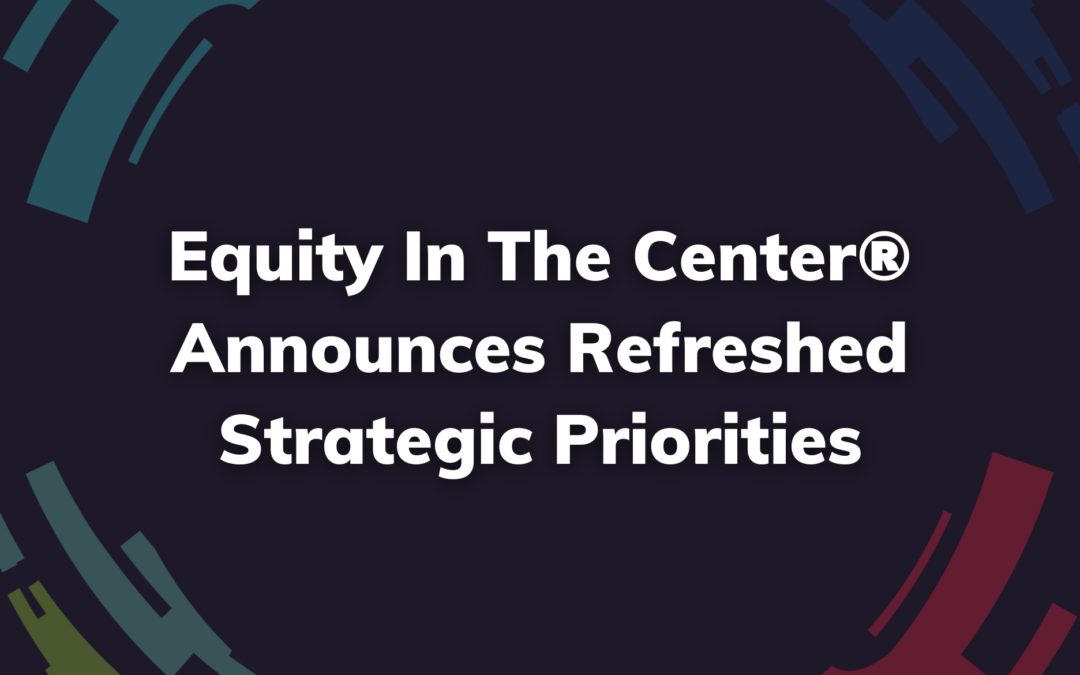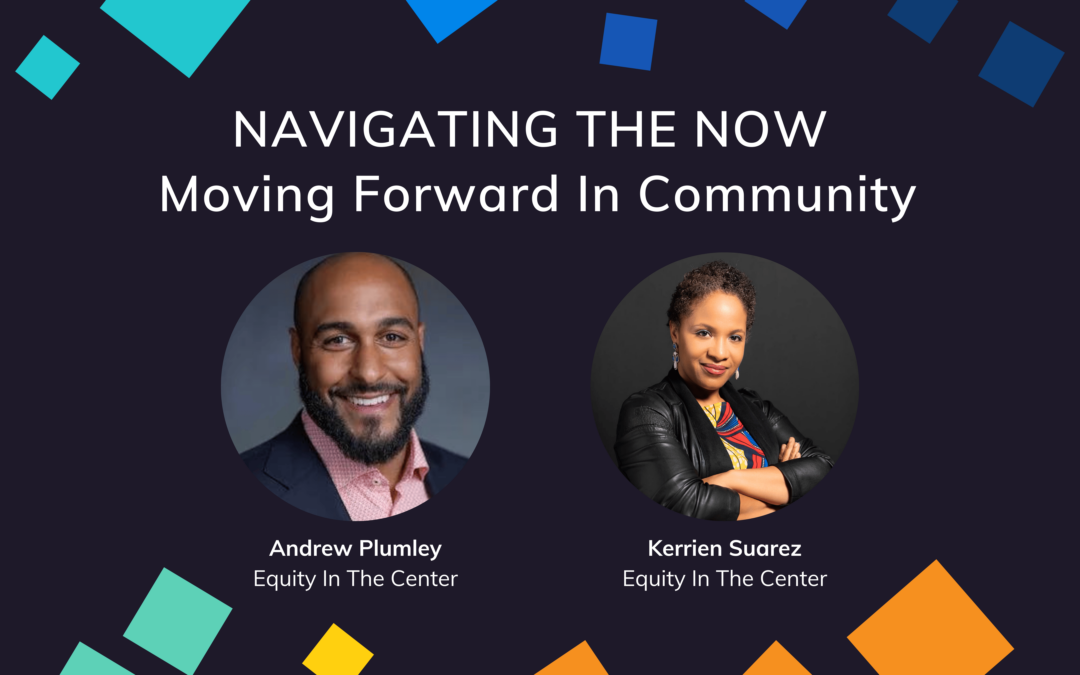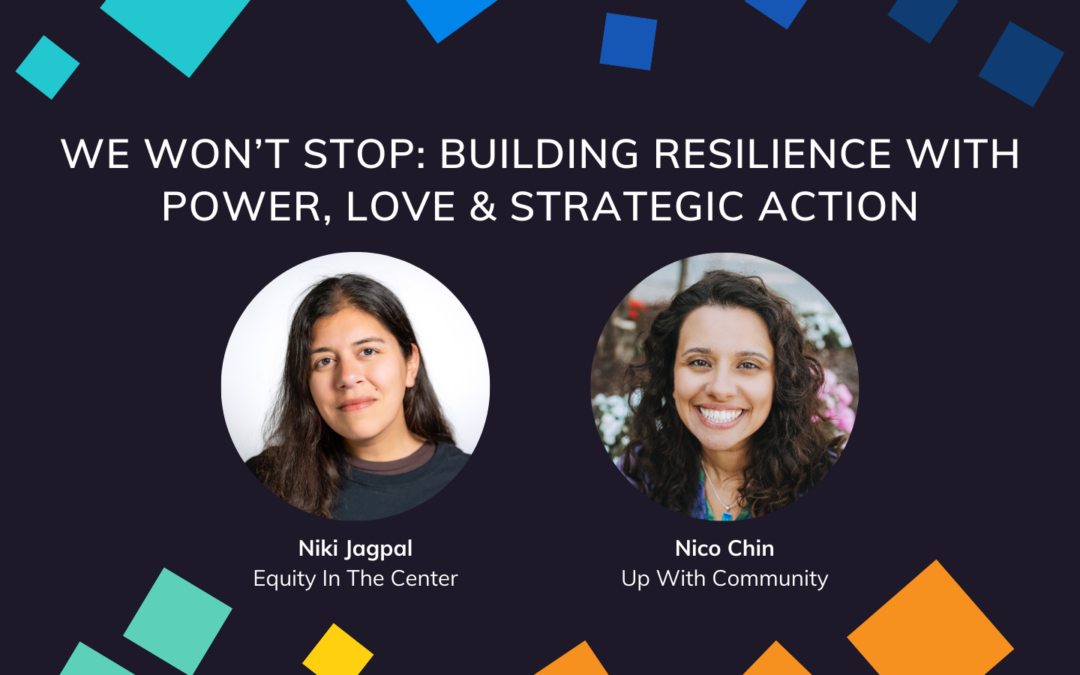By: Kerrien Rollins Suarez, Director of Equity in the Center
“We are now faced with the fact that tomorrow is today. We are confronted with the fierce urgency of now. In this unfolding conundrum of life and history…If we do not act [,] we shall surely be dragged down…”
-Dr. Martin Luther King, Jr., April 4, 1967
Equity in the Center recognizes the second annual National Day of Racial Healing (#NDORH) on January 16, 2018. Organized by the W.K. Kellogg Foundation as part of its Truth, Racial Healing & Transformation effort, #NDORH calls on people, organizations, and communities throughout the U.S. to engage in racial healing, celebrate common humanity, and take action to create a more just and equitable world.
The urgency and timeliness of #NDORH is amplified by an American president whose hateful, vulgar rhetoric embodies the historic and contemporary effects of structural racism. Today, and every day, Equity in the Center encourages social sector leaders to generate action that will bring our communities and our country together to generate focused, positive action in defiance of today’s political climate, and in fulfillment of Dr. King’s dream:
- Find ways to reinforce and honor our common humanity and create space to celebrate the distinct differences that make our communities vibrant.
- Acknowledge that there are still deep racial divisions in America that must be overcome and healed.
- Commit to engaging people from all racial, ethnic, religious and identity groups in genuine efforts to increase understanding, communication, caring, and respect for one another.
By taking one of these recommended actions in recognition of #NDORH, or as an Equity in the Center stakeholder supporting leaders and organizations in creating a race equity culture, our individual and collective work will not only create the space to name and begin to heal the deep racial divisions that still characterize American life, but will also generate the “type of constructive, nonviolent tension” Dr. King believed was necessary to the growth of American society and culture. In his ‘Letter from a Birmingham Jail’, King wrote of both literal and figurative tension; literal in the form of nonviolent collective action, and figurative in terms of a tension within the mindset, values, and culture of individuals and communities:
“…the kind of tension in society that will help men rise from the dark depths of prejudice and racism to the majestic heights of understanding and brotherhood.”
To generate this constructive tension, and inspire the healing opportunities that #NDORH promotes, Equity in the Center issued a Call to Action, challenging social sector colleagues to dismantle white supremacy and institutional racism, and to adopt specific tactics on the four levels at which racism operates: personal, interpersonal, institutional, and structural. Our aim is to compel nonprofit and philanthropic organizations to build a Race Equity Culture that values the humanity and lived experience of all persons equally, and proactively counteracts social inequities internally and externally.
Our Race Equity Cycle provides a framework for building a Race Equity Culture within organizations. In the next few months, we will release additional research that outlines specific management and operational levers that leaders and organizations can employ in this effort. Click here to become part of Equity in the Center’s network and to be notified about our new research,resources, and future convenings.



